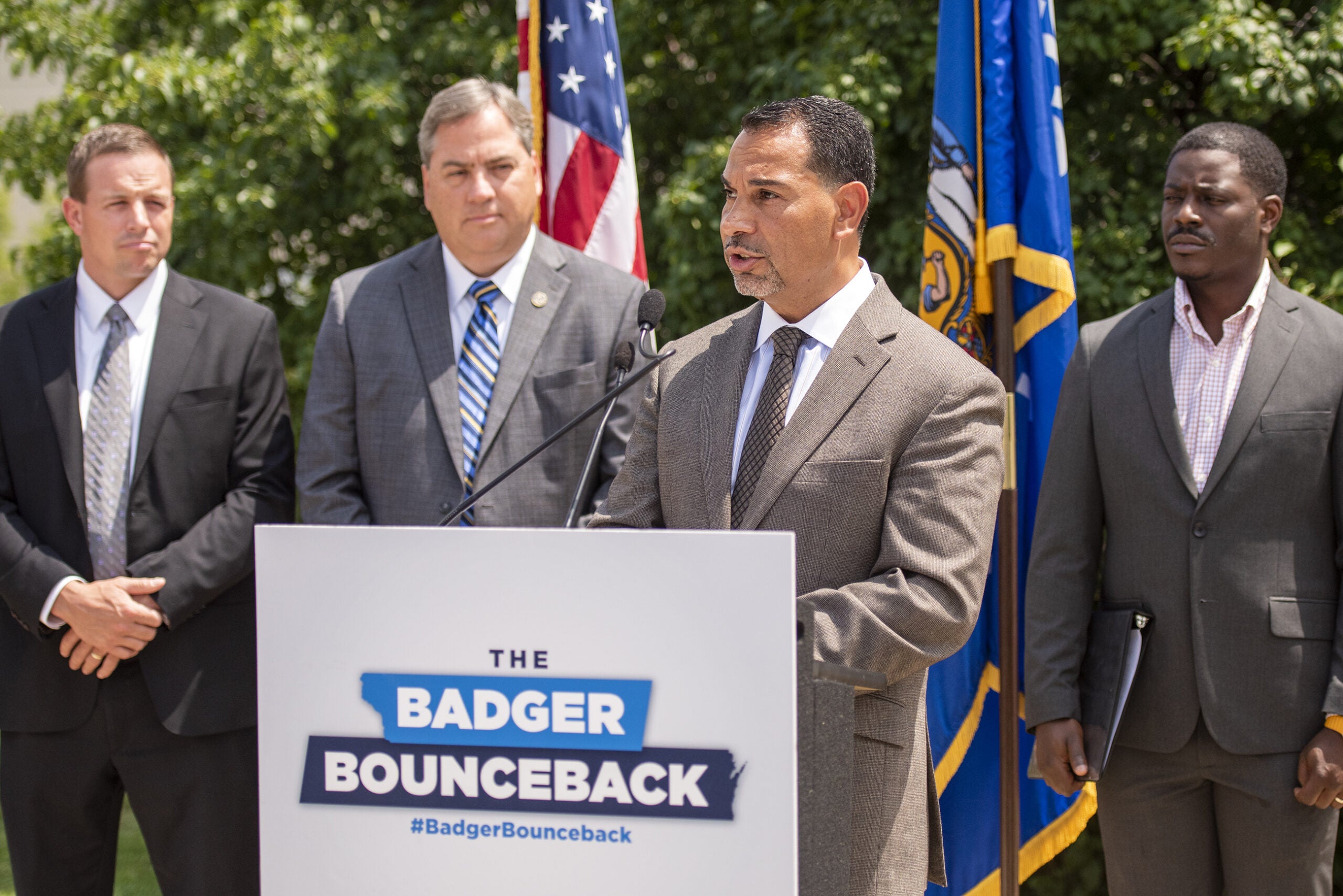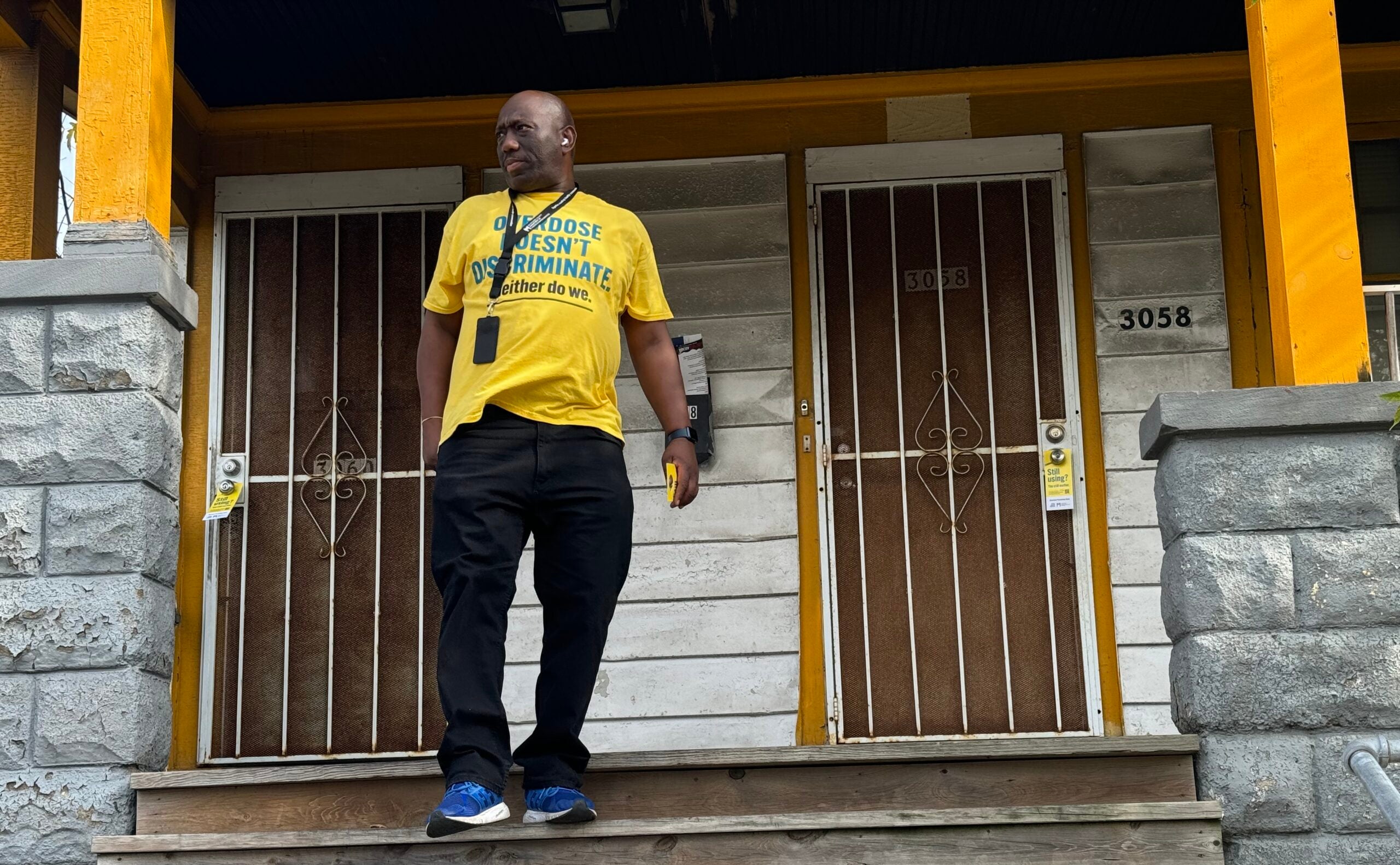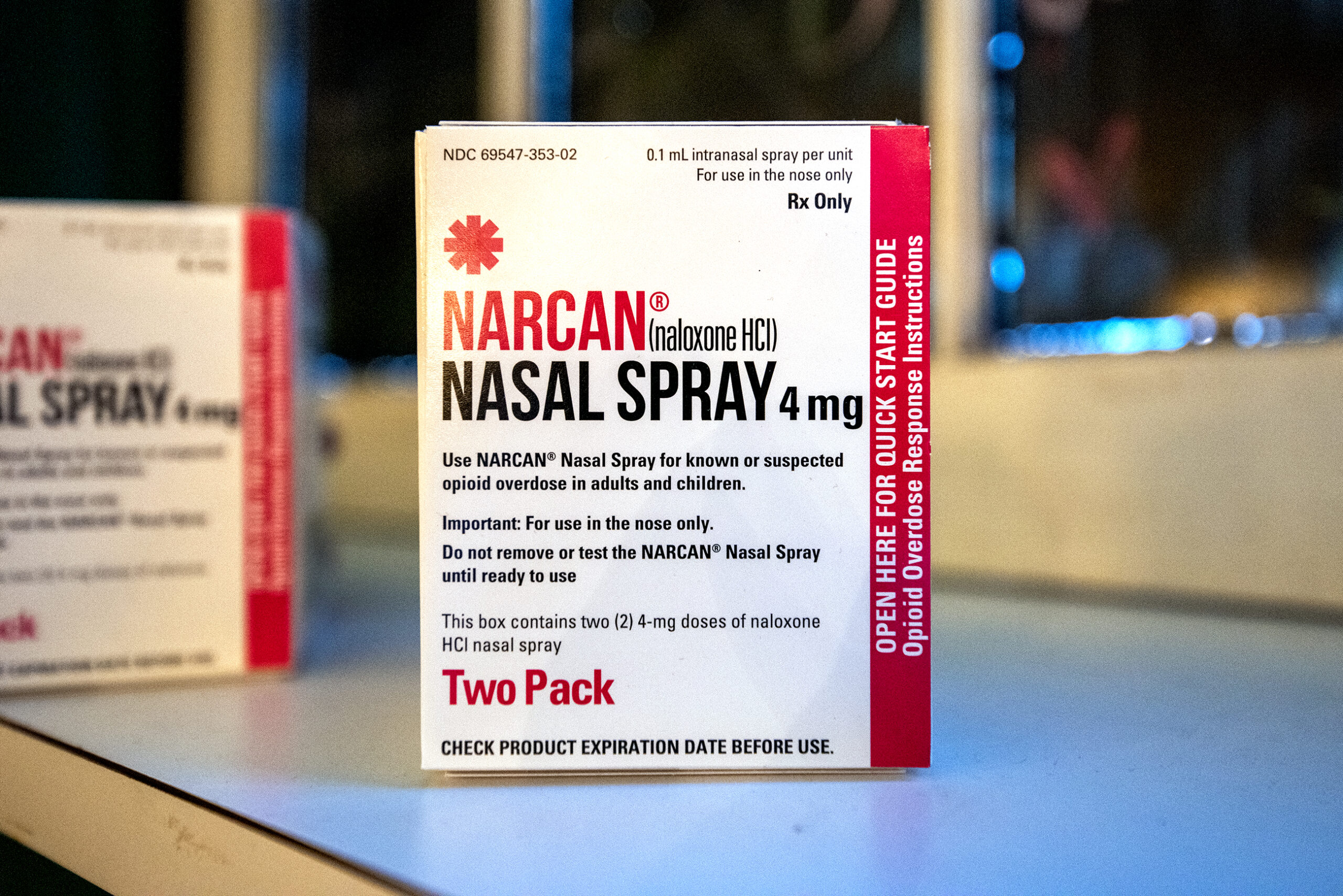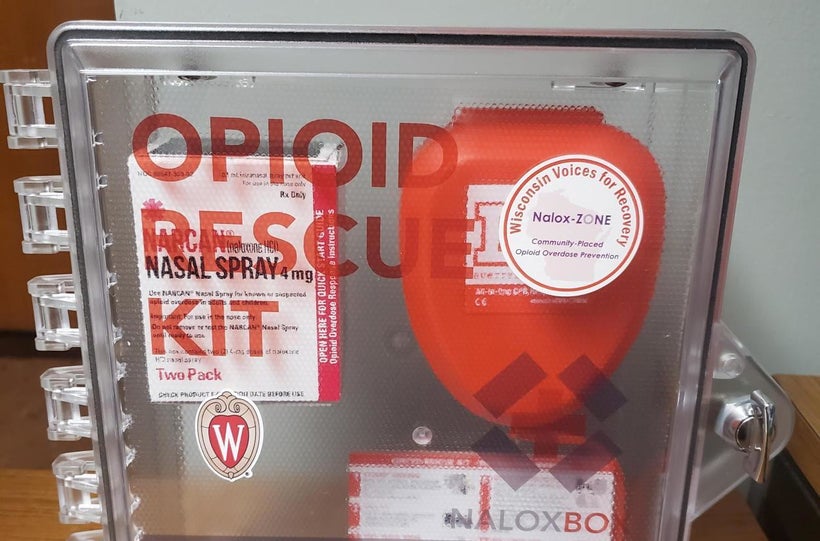Wisconsin’s opioid epidemic reached record highs during the COVID-19 pandemic as social isolation led to depression and anxiety for some people.
Leaders in Milwaukee and Waukesha counties hope an upcoming settlement with opioid manufacturers, distributors and retailers will help their communities.
“We are coming off a hard year, 2020 was difficult for many individuals but even more so for individuals who had substance use issues,” said Waukesha County Executive Paul Farrow. “The epidemic does not seek out one political party. It doesn’t ask who you are.”
Stay informed on the latest news
Sign up for WPR’s email newsletter.
Farrow spoke during a press conference Tuesday at Lutheran Social Service’s LSS Aspen Center in Waukesha hosted by Gov. Tony Evers. The LSS Aspen Center opened in October 2020 as the first medically-monitored community-based residential care facility in Waukesha County that offers people treatment for substance abuse disorders.
Last week Evers signed a GOP-sponsored bill that lays out how potential opioid settlement would be divvied up between the state and Wisconsin counties.
All Wisconsin’s counties, except for Polk, are part of opioid lawsuits nationwide that were consolidated into multi-district litigation in a U.S. District Court in Ohio. The lawsuits were filed four years ago by Wisconsin.
Talks with the defendants have been underway for a year and half, and local governments say there could be a settlement in the next month or two with opioid distributors.
Under the new law, 70 percent of the funds would go to counties and local governments, the other 30 percent would go to the state Department of Health Services.
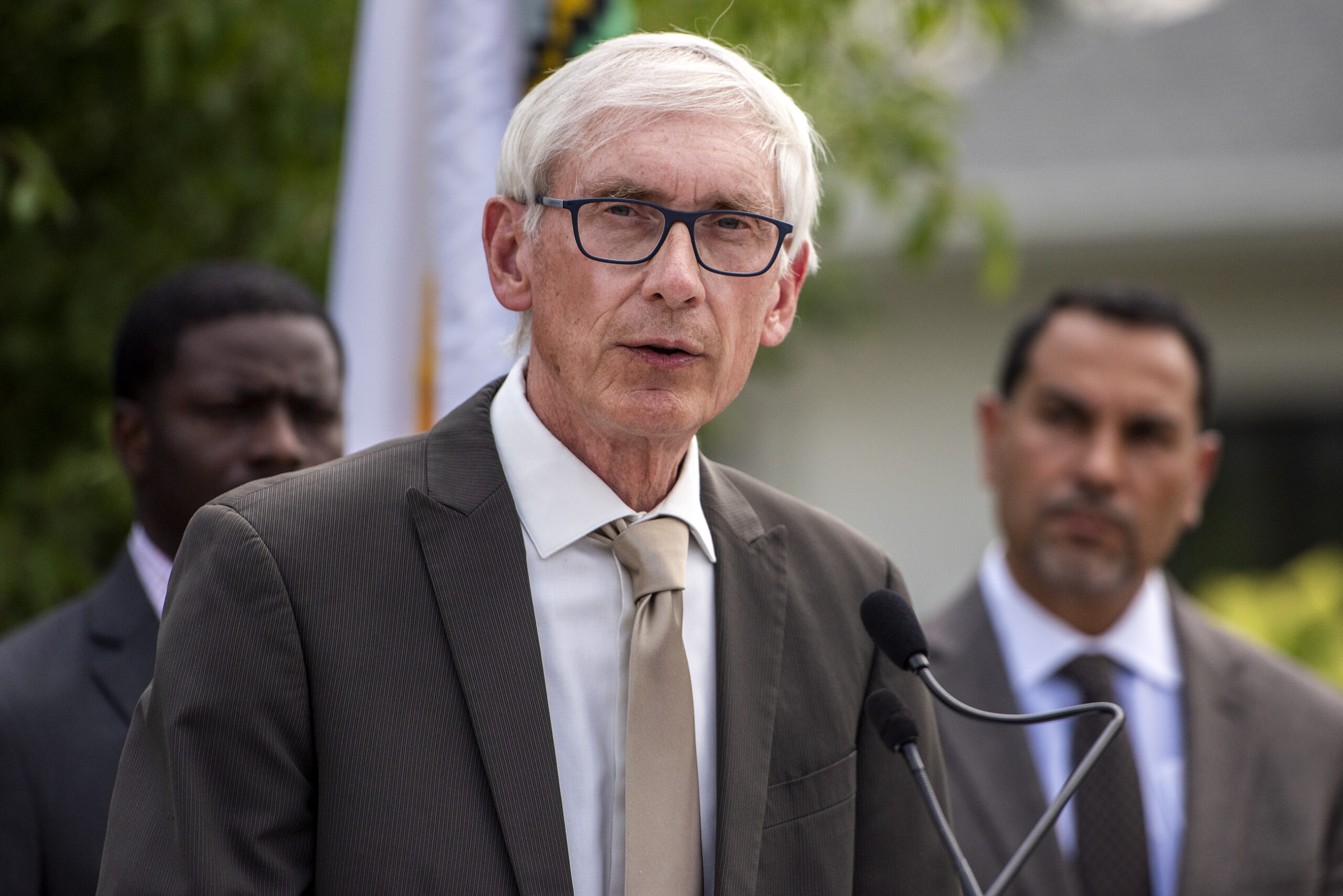
When asked Tuesday, Evers wouldn’t comment on how much money could be allocated to Wisconsin, instead, saying the money will be used to provide mitigation and prevention.
Last year more than 1,100 people died from opioids, according to state data.
“The unfortunate truth in our state is far too many Wisconsinites have seen and experienced the tragedy opioids can cause firsthand,” Evers said. “It’s a pervasive and devastating truth that creates an incredible strain on our entire state. From the individual who is struggling … to family and loved ones, to the kids who might be uprooted.”
In Milwaukee County, more than 500 people died from an overdose in 2020. County Executive David Crowley said drug addiction doesn’t target people according to socioeconomic status, race or age.
“It reaches communities in all parts of Wisconsin,” Crowley said. “This law is key to unlocking desperately needed funding for local communities all across Wisconsin to address the destruction that has been left by the opioid epidemic.”
Wisconsin Public Radio, © Copyright 2025, Board of Regents of the University of Wisconsin System and Wisconsin Educational Communications Board.

